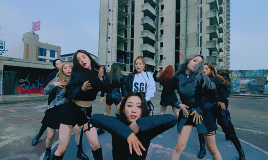I'm Eunny💕just a normal girl with a normal life, but there's something about me that no one knows yet, cause I have a secret... I spent my lifetime watching Koreans and reading books 🌙I am into agere❤✨ 🌈I'm an Autistic Cat🌨 I'm not going to answer haters, just block 🌸IMVU: babyhitomi🌸 🍪100% SFW. DNI is you are not SFW, ok? Thank you💕🍪 🍫If you see bad words: They are not mine! ㅠㅠ🍫
Don't wanna be here? Send us removal request.
Text
All stimming is cute, not just paint mixing and glitter jars and slime.
Rocking is cute. Hand flapping is cute. Chewing on things is cute. All stimming is cute!!! (Feel free to add ur own stims)
3K notes
·
View notes
Text
Meltdowns: A Survival Guide
Not all autistics get meltdowns (or get them often), but many of us know the harsh reality of how bad they can be.
You scream; you cry; you get angry; you snap at every little thing. You feel like your skin is on fire; every sound is thunder in your ears; your head hurts; you’re going to explode. You rock, you pace, you bang your head, you throw things, you scratch at your body, you kick, you hit. Some or all of these things can happen during an autistic meltdown. When everything just becomes way too much for you to handle, when every emotion, sense, and thought is screaming “STOP! NO MORE!”, it literally becomes the definition of “sensory hell”.
It doesn’t get much better after the meltdown passes. You end up exhausted, sensitive, weepy, unable to talk. You need quiet and darkness and you feel disoriented and dizzy, even physically sick. The meltdown aftermath can last for hours or even days while you recharge.
We can’t stop our meltdowns from happening any more than we can stop physical pain when we get hurt. It is completely involuntary and none of us want to have them. So what can we do? Survive them.
Meltdown Survival Tips:
Before
If you know you are prone to frequent meltdowns, keep your nails short so there’s less chance of damaging your skin.
Always keep sound-cancelling products near you (ear defenders, ear plugs, headphones). If you are in a work environment and can’t get accommodations, ear plugs might be your best bet.
Keep stim tools nearby. Tangles, fidget cubes, fidget spinners, and chewelry are great for when you’re at home or in a casual environment. When you are at work, spinnable pendants, bead jewelry, spinner rings, diffuser necklaces, or something small and soft to touch can be helpful. If you have pockets, you can also quietly fidget with something inside them (For example: one time I was in meltdown mode all day at work and the only way I could cope was by smoothing my thumbs across these two slick tags I found on the ground).
If you can tell you’re approaching meltdown mode, try explaining to others that you need to go somewhere quiet and dark. If you can’t explain, make some logical excuse to take a short break and go somewhere else.
Have a comfort object or plushie available. Even bringing a small one like a Disney Tsum Tsum in your bag can be comforting.
Explain to people you trust what meltdowns can be like for you before you have one around them so they can try to help and keep you safe. Make sure you tell them what they should and shouldn’t do in the event of a meltdown so they don’t accidentally make it worse while trying to be helpful (i.e. touching you, asking too many questions, etc.).
If you bang your head during meltdowns, don’t put anything hard and pointy in your hair. There might not be time to take it out while in meltdown mode and it could cause serious damage to your head.
Have alternate communications available! Texting, a notepad app on your phone, pen and paper, or even basic sign language can all be good options.
During
Even if you don’t have stim tools, try to body stim (it really does help!).
Do your best to keep breathing. Resist the urge to hyperventilate.
Use grounding techniques, counting, or singing and humming little nonsense songs during the meltdown to help you focus on something to stay calm.
Sometimes weight and pressure can help you better ride out a meltdown.
Don’t be afraid to sit or lie on the ground. It would be a lot worse to fall down and hurt yourself during a meltdown than it would be to avoid the stares of people around you.
If a police officer tries to confront you, keep your body language as open as possible. Don’t act aggressive, call for help if you need to, and don’t try to run away. Don’t reach for anything in your pockets or bag and don’t try to protect your possessions from being taken. They most likely won’t understand your behavior even if you explain you’re autistic, so do your best to follow what they say, even if it’s hard while in meltdown mode. Your physical safety is of utmost important in that moment.
If a stranger confronts you to ask if you need help or accuse you of causing a disturbance, just say as simply and calmly as possible that you need to be left alone and that you’ll be okay soon.
If you can, try and remember that the meltdown will pass, no matter how awful it feels. It’s going to be okay.
After
If you accidentally do something harmful to someone during a meltdown, please be responsible for your actions. You can’t help that it happened, but it still happened. Apologize for what you did to those people and explain what was going on without using it as an excuse. If possible, ask if there’s anything you can do to make up for the “damage”.
Meltdowns take a lot of energy and might make you hot. Make sure to find ways to cool down if you need to (Sometimes you can feel very cold after too, like a fever, so change your needs accordingly).
Please be understanding of yourself once your meltdown is over. Try not to hate and blame yourself; it’s not your fault.
Reach out to one of your comfort people and tell them you don’t feel well (or if they know you’re autistic say you had a meltdown) if it will make you feel better to talk to them. Just don’t overwhelm yourself with conversation.
If you did end up harming yourself somehow, please try to take care of it as soon as possible after the meltdown. Clean any wounds, get ice packs, and take medicine.
Drink plenty of water and eat something if you need to.
After the meltdown, practice self-care. Watch a comfort movie, wrap up in a blanket, take a bath or shower, eat some sweets, pet your animals; do something that makes you feel a bit better and happier.
If you have a meltdown while you’re out, go home as soon as possible.
If you can, take time to rest and sleep.
It may take a couple of hours to days to fully recover so go easy on yourself during those times.
A meltdown can be one of the major symptoms we hate having as autistics, but there are ways to make it easier and help them to not interfere with our ability to enjoy loud, fun things we want to do, to work, interact with our friends, or anything else.
If you have any other suggestions for how to manage and survive meltdowns, please reblog and add them!
–
Ok to Reblog!
Day 28 of Autism Acceptance Month 2018
Check out:
Keep reading
3K notes
·
View notes
Text
Dear SLPs, teachers, therapists, parents, etc.
I get that sometimes you students/clients/patients/children/etc. react in ways that don’t make sense to you. I understand that sometimes those reactions may seem bigger than you think that they need to be. But please, please do not use “size of the problem” as a way to gaslight these kids. Today I saw an SLP working on “size of the problem” with a student. The example was something along the lines of “You eat the same snack every day after school, but today you can’t eat that snack.” The “correct” size of the problem was small. The student kept insisting that it was a medium problem because of how upsetting it would be, but the SLP insisted that it was a small problem and that he should be able to brush it off. Unfortunately, this is not the first time I have seen a (presumably) NT adult steamroll a child’s emotions and prescribe the “proper” way to react. A schedule change is not a small problem for lots of ND people like myself. Now that I’m older I can handle things better, but at this child’s age not having a snack that I ate every day after school would’ve been catastrophic. Routines are security. They keep the world in balance. Just because it doesn’t feel like a big problem to you, an NT (or different ND), that doesn’t mean that it’s not a big problem to the people actually experiencing that major upset. By all means, teach kids how to handle changes in routine. Teach them coping mechanisms and give them time to prepare and make sure they know that no matter their level of upset things like hurting others are unacceptable. Do anything they find helpful - except tell them how to react emotionally. Do not tell them that their emotions are wrong and don’t make sense just because they don’t make sense to you.
446 notes
·
View notes
Text
Autism & cutting off in conversations.
I seen a lot of people here and there reblog posts like “If you see someone being interrupted don’t let it happen just put the person in their place”. This kind of scares me and other people I know who have autism. We literally have a hard time reading the context and telling when someone is finished speaking or just paused. This is especially a problem in group settings where we accidentally cut people off a lot thinking they were finished.
Of course we stop once we realize they weren’t finished. Often we go to the extremes where by the end of the conversation we ended up never getting a chance to speak in fear of cutting someone off or we accidentally cut someone off because of a misread pause. This is a great source of anxiety because either we leave never having said a word never sure if we could speak or we are seen as rude for accidentally misreading the situation.
So if a person with autism cuts someone off… just maybe try to help them out instead of lecturing them on their terrible social skills. Give signs to show when you are willing to “pass the microphone” per say (even just for comments/relating about the story). That or at least don’t lecture them or give them a mean look to make them feel like a bad person for misreading the situation. You can say like “Oh I wasn’t done I’ll open up the floor for comments with a nod” or something lol. It sounds silly but literally can’t even tell the difference between a pause and an end.
10K notes
·
View notes
Text
If you’re going to spread “Autism Awareness”, then spread awareness that
We still face workplace discrimination
Caretakers are killing us
Autistic poc are killed for acting autistic because it’s “suspicious”.
ABA is not okay!
The Judge Rotenburg Center is still getting away with abuse.
Autistic girls are underrepresented (and it’s worse for Autistic girls of color)
Autism $peaks does not speak for us!
38K notes
·
View notes
Text
If you have anyone in your family that has autism, or any friends, then please for the love of god do not support autism speaks. They have literally told parents that beating and abusing their kids is a-okay when they get tired of all the meltdowns and stimming. Every single member of their organization has no relation to anyone autistic and has the wrong views and values towards those of us who do have it. They are toxic. Also, please do not support the blue puzzle piece or that trash post about the blue pumpkins. It is a known fact that people who see those stupid things attack the parents for allowing their adult children to be around younger children.
40 notes
·
View notes
Text
Ok where's the camera?
autistic childhood is like: *hides in library* *is ostracized by peers* *puts hand out car window to feel the wind pulling your hand* *hides under desk* *is forced to hug relatives* *spins in a circle* *is bullied* *screams when something changes* *is whispered about by adults* *hides under bed* *picks a fictional universe and mentally lives in it* *is ostracized by peers* *watches same movie over and over* *acts out the same story with your toys over and over again* *paces* *imitates noises you hear* *is ostracized by peers* *screams when somebody touches your stuff* *accidentally says something rude and is punished* *makes weird facial expressions by accident* *is either loved or hated by teachers* *hides in a bush* *is whispered about by adults* *is ostracized by peers* *hides* *is bullied* *hides* *hides* *is whispered about* *hides* *is ostracized* *hides* *hides* *hides* *hides*
24K notes
·
View notes
Text
the well-known tendency for autistic people to speak in a weird mix of extremely formal and extremely colloquial speech patterns is so distinctive that even many unintentionally autistic coded characters display it. In fanfiction, however, these same characters are often written to speak in a stiff, purely hyperformal way. This may be because many allistic people can’t easily reproduce the mix, since most people divide their registers more. However, there may also be some “smart awkward character=formal speech” stereotyping that overrides their knowledge of the character’s actual voice. In this essay I will
9K notes
·
View notes
Text
I remember being bullied in school for having my plushie with me and they even stole it :c

It’s a serious thing, I’m autistic and have a stuffed animal I keep with me at all times so I can stim and not panic. Normalize people’s safety items!
Edit- if you reblog my content and say anything disrespectful then I will block you. This is my personal view and if you don’t agree with it don’t reblog this. And don’t interact if you are a ddlg/caregiver etc. this is only meant for people that are autistic or that use a safety item.
5K notes
·
View notes
Text
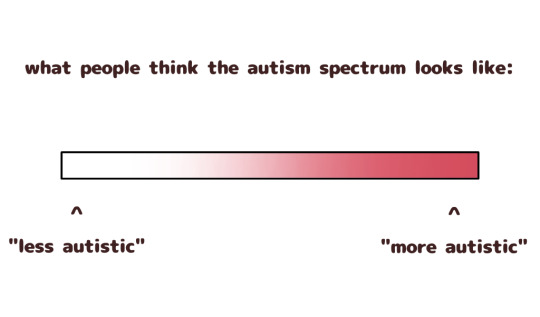
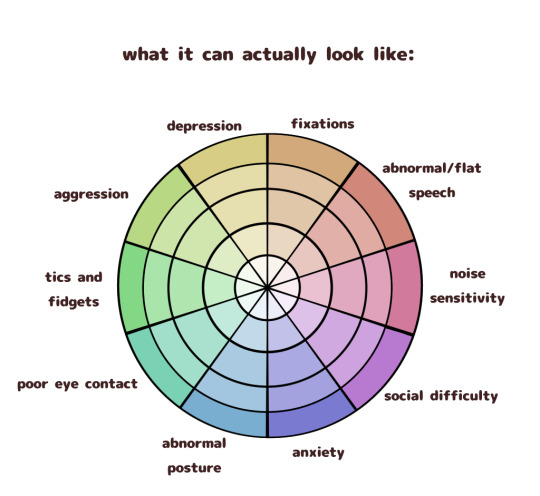


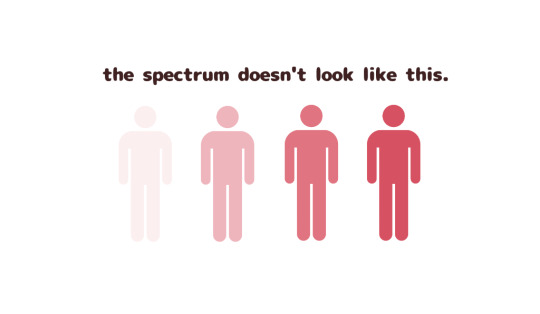
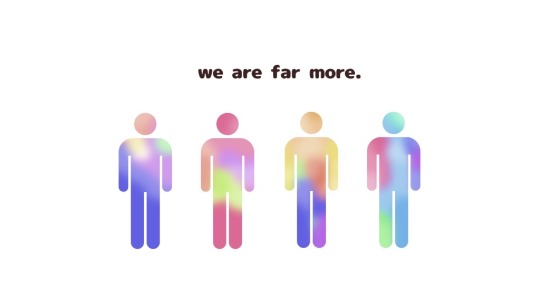
messy thing just to get my thoughts down
128K notes
·
View notes
Text
They are just so perfect in all aspects
when Dreamcatcher sang in full moon ‘I promised love, anytime, I will give you moonlight in this night sky, I want to fill this whole world with this light’ and in I miss you ‘The stars shining in the sky are nothing compared to your eyes’ and in you and I ‘Hold me tight and when we become one, bring in all the moonlight, endlessly in the sky, I’ll be a bright light, always, like in your dreams / Close your eyes, hold my hand, forget all the times you were alone, I’ll be on your side in this dark world’ and in over the sky ‘Like the morning sun that comes to find you, I’m going to light you up brighter every day’ and in trust me ‘It’s been a while, come rest here, you’re always so busy, sometimes, you can take a break’ and in tension ‘Everything can’t be perfect all the time, it’s okay, you’re doing great right now’ and in deja vu ‘In the midst of the darkness, like a ray of light, you took my hand’ and in polaris ‘I’m happy that it’s you, among those numerous connections, among those numerous people’ and in daybreak ‘Between curtains, faintly illuminating me, a white moonlight, filling the room, even the cold air feels beautiful, because of the light that is you’ and in the frozen ‘Embrace me, filling your arms, give me warmth and eventually I’ll open my eyes, and start to move, yes I will move’
306 notes
·
View notes
Text
I don't really think that anyone is invisibly disabled. I thought I was invisibly disabled for a lot of my life, but it turns out I just felt like I had to look abled.
I think people society calls "invisibly disabled" are actually pretty fucking visibly disabled, but society tells us that we have to look abled or we're not trying hard enough. I spent a lot of my life trying to look abled, because otherwise people would stare at me, people use the baby voice when talking to me, I get unsolicited advice, etc. The second I realised that actually I don't owe anyone me looking abled and it's actually okay to use my mobility aids, I went from invisible to visible.
In a perfect, accessible world, I think that everyone who has invisible illnesses and disabilities would actually use wheelchairs, canes, walkers, mobility scooters, they wouldn't try to hide hair loss, braces, ostomy bags, and we would no longer be invisible. A girl in my local shop has a problem with her kidneys and can't walk very well due to pain, she's said that she would actually use mobility aids if it were easier and she wouldn't get nasty comments.
Society tells us we have to look abled, or it's just that nowhere is actually accessible. We often don't have a choice BUT to power through the pain and be invisible. I want to work on no longer trying to be invisible and be okay with looking disabled, because I harm myself by trying to look abled. If people with invisible disabilities stopped trying to look abled, visibly disabled would actually be the norm.
113 notes
·
View notes
Text



So people are making different videos for you to use in uncomfortable situations!
The majority of the Uber ones mention in some way that they have your location on. Some you would pretend are messages someone left on your phone. Some have a script for you to follow along to on screen! Some are specific to who are calling you!
115K notes
·
View notes
Text
That also happened on Atypical and it really triggered me
This is a big fear of mine.
59 notes
·
View notes










